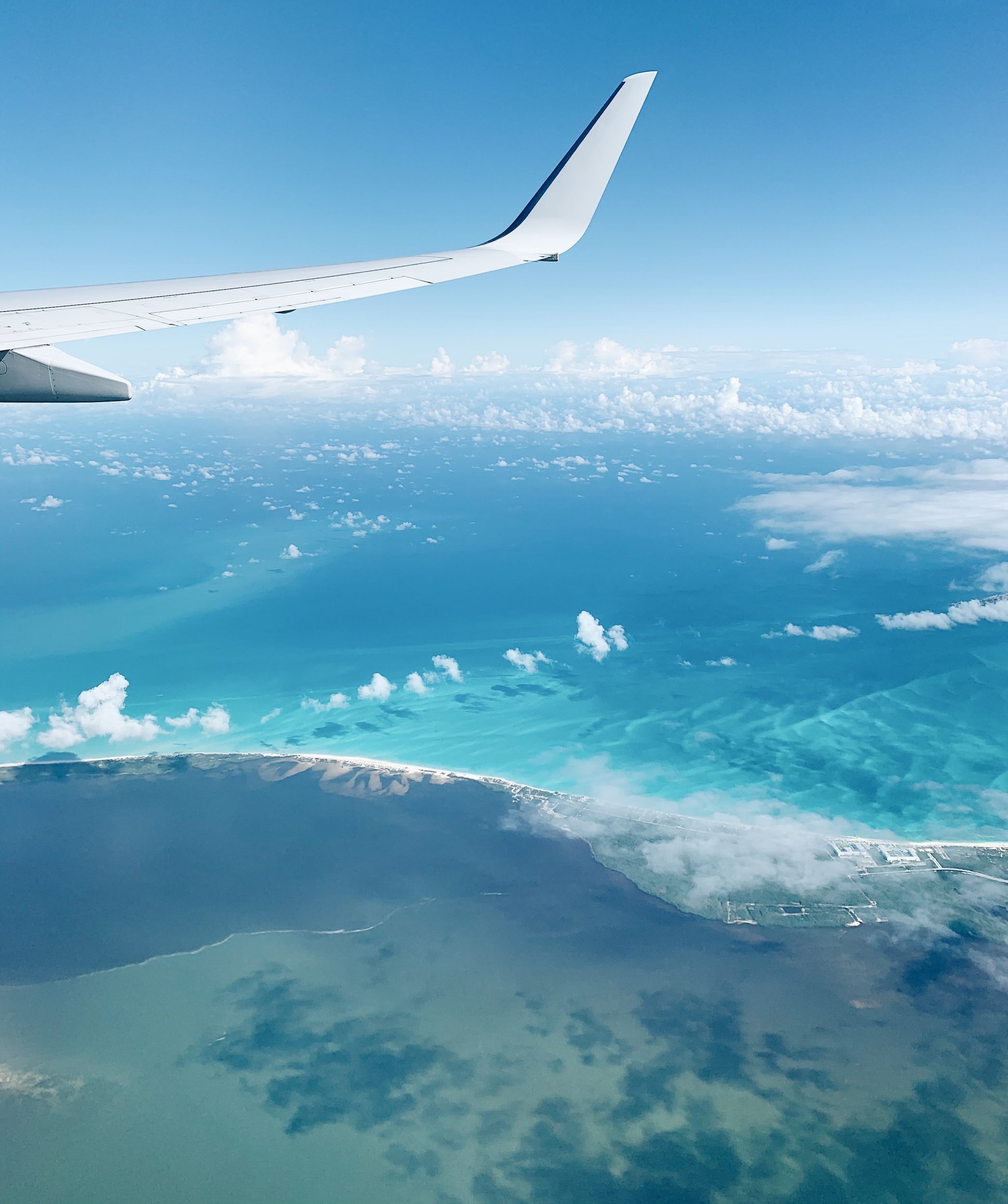Travel Budgeting Basics: 8 Simple Steps
Whether you’re deciding on a destination, dabbling in the finite details, or simply saving up the funds for your next escapade abroad, sometimes, just organising a trip can knock the motivation right out of you. Here are the top Travel Budgeting Basics: made easy for you in 8 Simple Steps.
Regardless of where you sit on the scale, a travel budget will serve you in collocating the criteria and enjoying every aspect of the holiday-planning process.
Here’s what we cover in this guide:
Major Expenses
Accommodation
Transportation
Food
Activities
Travel Gear
Spending Money
Emergency Money
Step 1: Start With the Major Expenses
Think of how you’ll be getting there. Most of the time, transportation is the most considerable cost you’ll incur. Depending on your travel style and destination, the expenses will differ. Kick off the process by researching various options and setting a tally for an estimated figure.
Begin with flights, trains, buses, car rental, or boat hire. If you’re keen on checking off more than one location, don’t forget to write down the approximate prices too. Then, combine all the transport costs and highlight them in your plan. Skyscanner and Kayak are my go-to for flight comparison, which offer the best deals.
Top tip: Plan to travel during the low season. This way, the price of flights, accommodation, transport, activities and even food can work out significantly cheaper.
Step 2: Compare Your Accommodation Options
After prioritising transport, the next step in creating a travel budget is to set aside the funds for lodging. Think about where you’ll be staying and what neighbourhood you’d prefer.
Search for various accommodation options like hotels, hostels, Airbnb, etc. Everybody has different preferences, and there’s really no right or wrong way to do it. If you’re on a tight budget, consider shared living options like hostels or Couchsurfing.
Always try to find a place that has a kitchen. This way, you can save yourself money by cooking at your accommodation. If your accommodation options are too expensive, you could always consider a work exchange too.
Step 3: Decide on Transportation
Do you see yourself cruising down the coastline in a car, or can you picture yourself soaring on a motorbike with your mullet flying in the wind?
Every destination is distinct, and so are every traveller’s transport preferences. The next stage in planning your travel budget involves considering how you’ll move around. What’s the best option to suit your travel needs?
Compare cycling, public transport, boat rides, taxis, walking, car, motorcycle, or van hire. Add up a rough tally for transportation costs, and set that aside in your budget. It’s important to note that public transport can work out a lot cheaper if you book the tickets well in advance.
When we travelled to Madrid from Barcelona, we booked our train tickets for only 22€ return in February. If we were to have secured this in peak season, it would have cost us more than 100€ return…
Step 4: Plan Your Food
Don’t take this literally. There’s no need to write a lengthy list of every single item of food you plan on consuming. That’s just ridiculous. But when making a budget for travel, it’s essential to think of what you’ll be eating on your trip. Do you plan on eating out at restaurants three times a day, or do you prefer to shop at a supermarket and whip something up in your accommodation?
You can get an idea of average meal prices with simple online research. Thanks to modern-day technology, there’s a panoply of helpful sites such as TripAdvisor and Zomato where you can find information and honest reviews. Food costs are undoubtedly a significant part of vacation planning, but you can save much if you plan ahead.
If you’re travelling longer, aim to cook at least one meal daily. One of my favourite things to do when exploring a new destination is head to the local market and pick some fresh ingredients. This way, you’ll not only get a taste of the more authentic side of local life, but you’ll help support families rather than large franchises and chain stores. Plus, prices at local markets almost always work out cheaper!
Step 5: Research Activities & Attractions
After nailing down transport, flights, accommodation, and food, now comes the time to look into the smaller-scale stuff. Part of creating a realistic travel budget that works involves looking into what you want to do.
Can you see yourself sipping cocktails by the beach, or do you prefer an adrenaline-fuelled hike on the mountain tops?
Concoct a rough draft on activities, day trips, and entertainment, and prioritise them in order of cost and time. Don’t forget about entrance fees, attraction fees, tourist taxes, etc.
Ideas for activities that are a little different from the norm include cooking classes, pottery classes, winery tours, sunset boat trips, dancing classes, live music performances, etc.
It’s wise to look online and in advance. Additionally, cities like Barcelona offer specifically designed tourist cards that proffer multiple discounts on activities, attractions, and even transport, so be sure to check the country’s national tourism website beforehand.
Step 6: Get Geared Up
Now, I’m not talking about anything fancy here. We’re gearing up but with the basics! Before embarking on any adventure, a bit of research must get done.
First and foremost, you’ll need to organise your passport and visa. Depending on your nationality and the destination, the costs will vary. Do your research and leave room in your budget for the necessary documents.
Next up is an International Driver’s Licence. Which, once again, depends on where you’ll be travelling and whether or not you’ll be hiring a car.
Additionally, vaccinations are something to consider. They can be relatively inexpensive and save you a lot of stress if something goes wrong. Look into what’s recommended for the region you’ll be travelling to, and factor them into your budget.
Last but not least is your travel gear itself. Having sturdy luggage and a quality backpack makes a world of difference. Other items include cameras, international phone plans, suitcases, neck pillows, money belts, and gear for specific activities such as hiking or camping.
Step 7: Set Aside Spending Money
This is probably the most basic of all the tedious details of travel budgeting. Gifts and souvenirs are a big ‘must’ for some travellers, but alas, not for all. Some people prefer experiences over things; however, if you are a traveller inclined to splurge some cash on bits and bobs, taking this step seriously is essential.
Set aside some room in your budget for the things you may want to buy to return home. A simple technique (to stop you from overspending) is to list the people you want to pick up souvenirs for and tick off the names as you go.
Step 8: Prepare Ahead
There’s always an element of surprise in any adventure… It’s crucial to prepare for any unforeseen circumstances that could arise. A complete guide to creating a travel budget would not be complete without this final step. Set some money aside for medical emergencies, accidents, or extra expenses that might pop up.
Despite your meticulous efforts and preventative planning, remember that you can’t control everything. From time to time, things do come up. And not having travel insurance could cost you tens (or hundreds) of thousands of dollars. When it comes down to dissecting travel insurance, there’s copious confusion.
And it can honestly be one of the most fastidious factors in devising your next adventure. It’s oh so often overlooked, but it should be one of the essentials when you’re planning on gallivanting around the globe. If you want more information on Travel Insurance, check out this post.
Whether you’re setting out for a sun-packed week in Mallorca, an adrenaline-fuelled skydiving trip in New Zealand, a snorkelling tour in Malta, an action-packed adventure in Andorra, or an active volcano hike in Bali, these Travel Budgeting Basics will make your life a whole lot easier. Take your time, consider your options, and enjoy the holiday-planning process with these 8 Simple Steps.
Do you track your expenses when travelling? What are some of your best tips?



